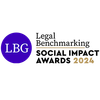A patent is a commercial tool. Patents define inventions that are often of some commercial value to the owner of the invention.
They are filed with the intention of realising their commercial value by making money from the invention. But how exactly can you make money from a patent?
A patent is a legal right that enables the owner to do nothing but stop third parties from exploiting the invention defined in the patent. A patent is often described as a ‘negative right’.
As an intellectual property right and in addition to the commercial value of a patent when used to exclude competitors from a market, it’s possible to license and assign a patent to a third party to generate revenue. Using a patent as collateral on a financial loan as part of a mortgage is also possible. These possibilities also apply to patent applications that have not yet been granted.
Here, we look briefly look at each of these possibilities for making money from a patent.
Assigning a patent to a third party
An ‘assignment’ is a transaction which transfers ownership of the patent from the owner to another party in exchange for money. That is to say, the money is made by selling the patent and the rights it gives. A party may sell a patent because they no longer feel it’s relevant to their commercial activities or because something happens to the party to necessitate the sale, such as bankruptcy. A patent may also be sold in a situation where a third party offers so much money that the owner cannot refuse.
In any case, the sale of a patent can generate income. A party may buy a patent because they wish to exploit the right it gives to stop other parties from using the invention it protects—either through a further transaction, such as a licence, or infringement proceedings.
Licensing a patent to another person or business
A licence, in essence, is an agreement between the patent owner and a third party to enable the third party to exploit the invention protected by the patent. The third party pays an amount of money (i.e. a royalty) back to the owner for the licence. The royalty can be determined in a variety of ways.
Licences can come in the form of exclusive licences, non-exclusive licences, and sole licences. They are the obvious choice for a party seeking to make money from a patent whilst still retaining ownership. The third party, in exchange for payment of the royalty, acquires the right to exploit the invention protected by the patent. Based on the terms of the licence, this right may be limited to a specific territory or field of use. It may carry other obligations on either or both parties, such as the obligation to enforce the patent or pay renewal fees for the patent.
Licences can offer the additional advantage of enabling access to a market not available to the patentee to generate an otherwise unavailable revenue stream. This may be the case where there is a regulatory obstacle to the market or even where the licensee has established goodwill in a territory where the owner of the patent is relatively unknown.
Using a patent as a security for a loan
A security on a patent uses a patent as collateral to secure a loan — which may be used to enable a company to expand or to invest in new products or new innovations. Patents are particularly useful as intellectual property rights when used in this way as the monetary value of a patent is linked to the product covered by the patent and, as such, is relatively secure and not dependent on potentially volatile factors such as goodwill. Securities exist in three forms, a mortgage, a fixed charge and a floating charge. Each is useful and has respective advantages and disadvantages. Taking a security on a patent is not a preferred option for many owners as there is a risk that the patent may be lost if the owner defaults on the loan.
Notifying the relevant authorities
It’s essential that any transactions on patents, such as assignments, licences or securities, are recorded at relevant patent offices; if not, it could affect the ability to use damages and/or costs in infringement proceedings.
Recording the transaction on the register can be time-consuming and costly but can be made more straightforward providing a few practical steps are taken, namely ensuring that the:
- transaction clearly identifies the patent rights
- date at which the transaction becomes effective is easy to determine from the transaction
- transaction document is signed by all parties to the transaction
Are there any competition law concerns
Assignments, licences and securities generally form agreements between commercially active parties. Therefore, these agreements can potentially attract the attention of competition authorities, which administer and enforce EU competition law. Care should be taken when drafting and forming these agreements to reduce the risk of them coming under the close scrutiny of the competition authorities. EU competition law is not only concerned with parties who have a place of business inside the EU — any agreement which can impact the competitive environment within the EU can come under the scrutiny of the competition authorities.
An assignment will not typically cause any competition law concerns unless it imparts any continuing obligations from the previous owner to the new owner. If such an obligation is likely to distort the competitive environment in the EU then the competition authorities are likely to take an interest. A continuing obligation on the buying party to provide consent over licenses to the selling party is likely to attract the attention of the EU competition authorities.
Licenses are the most likely form of agreement to attract the attention of the competition authorities. Particularly, clauses in license agreements which fix prices in any way, allocate customers or markets or restrict sales in some way should receive close attention during the drafting and negotiation process, as these are the clauses most likely to be described as anti-competitive. The presence of these clauses can attract heavy fines. Securities on patents are not likely to attract the attention of the competition authorities, as they are agreements typically between an investor and the owner of the patent. They will not usually lead to an appreciable impact on competition.
Our comment
It is possible to make money from patents, but this typically involves an agreement with a third party. These agreements require careful drafting and should clearly identify the patent rights concerned. To increase their legal benefit, these agreements should be registered with the relevant authorities.
If you have an invention you think could be exploited to generate financial revenue, the first step should be filing a patent application. After it has been filed, you can explore the different types of agreements described above.
When concluding agreements, the relevant aspects of EU competition law should be considered, as the fines levied by the EU Commission on parties can be considerable.



















